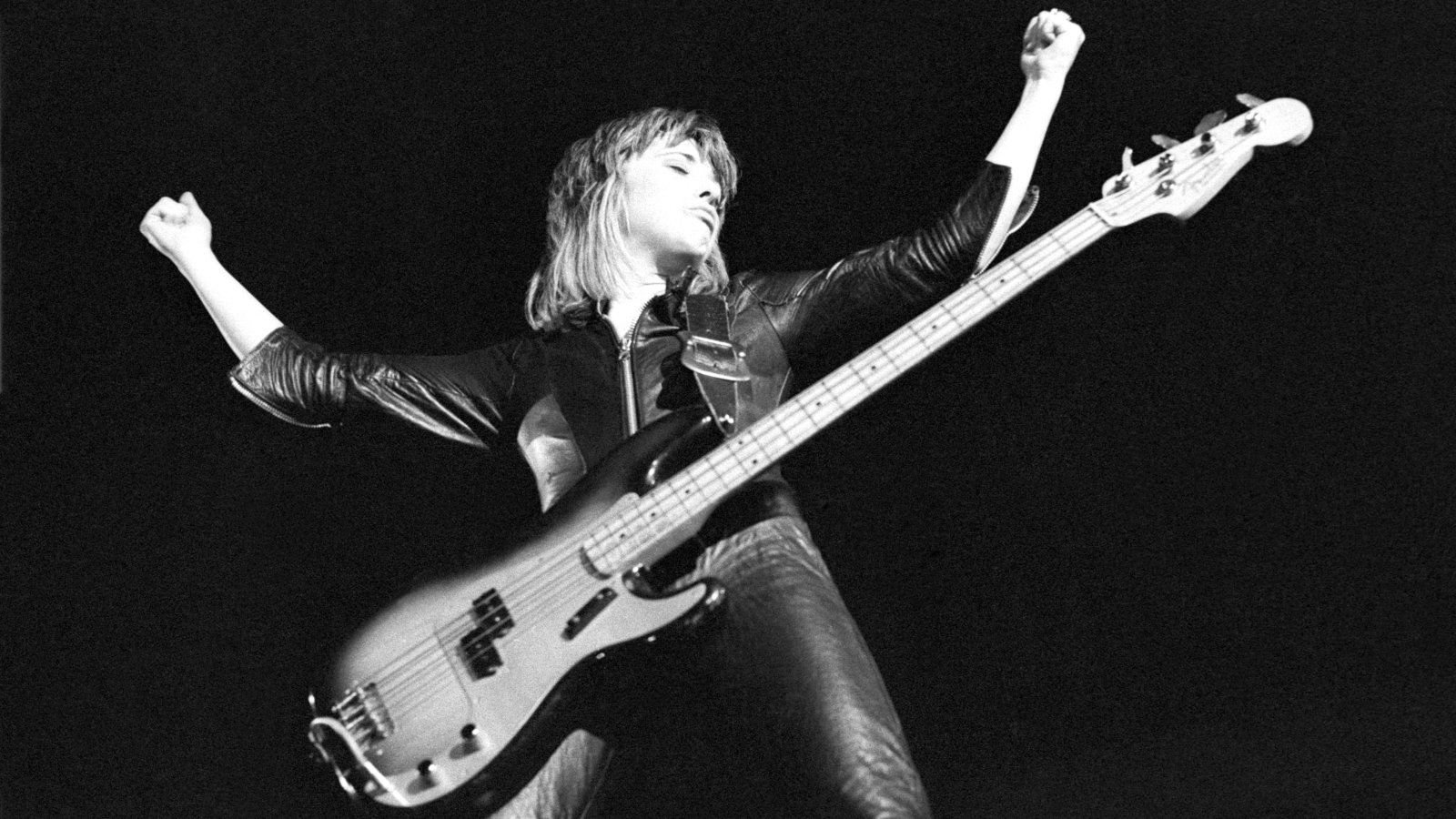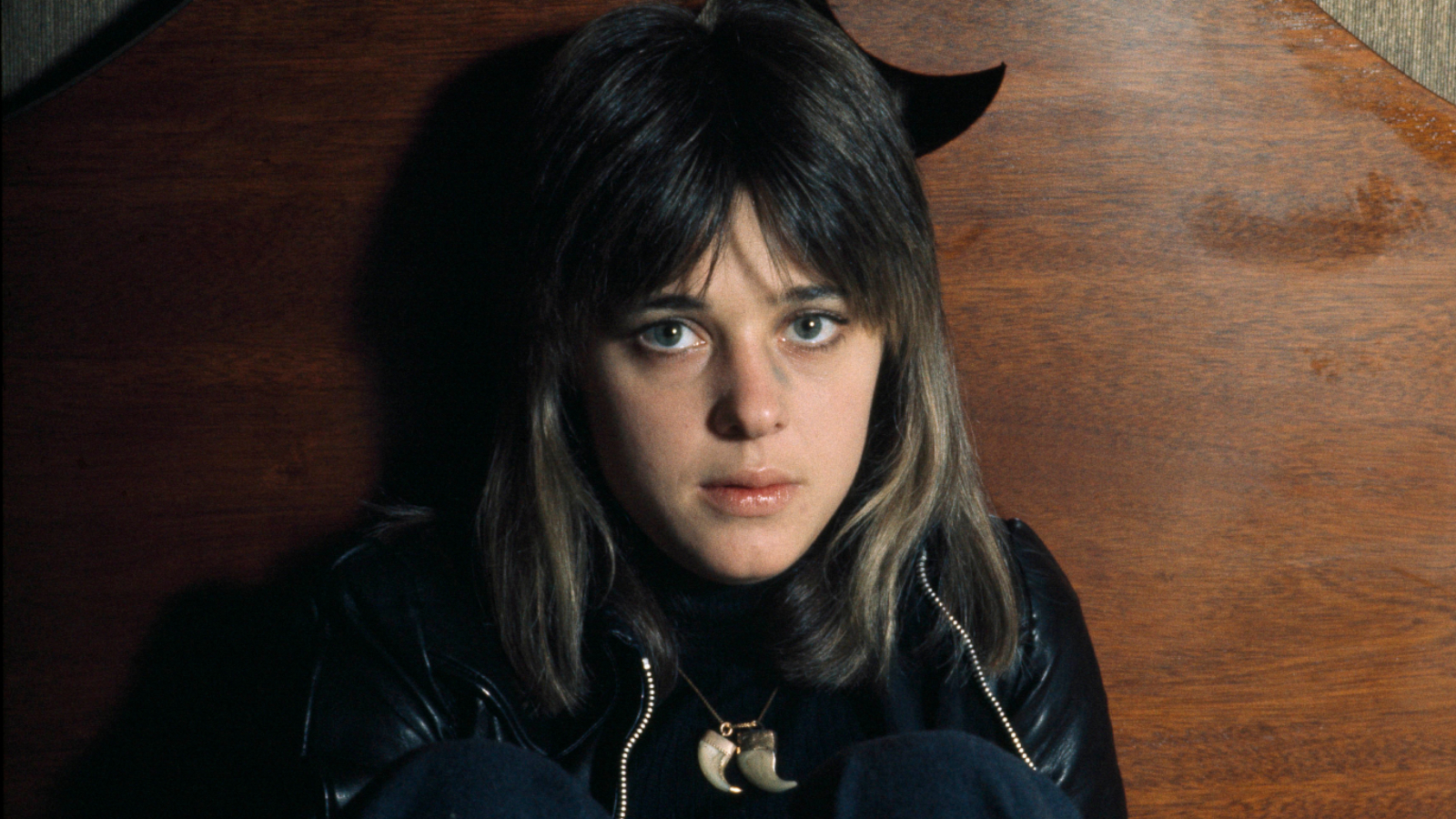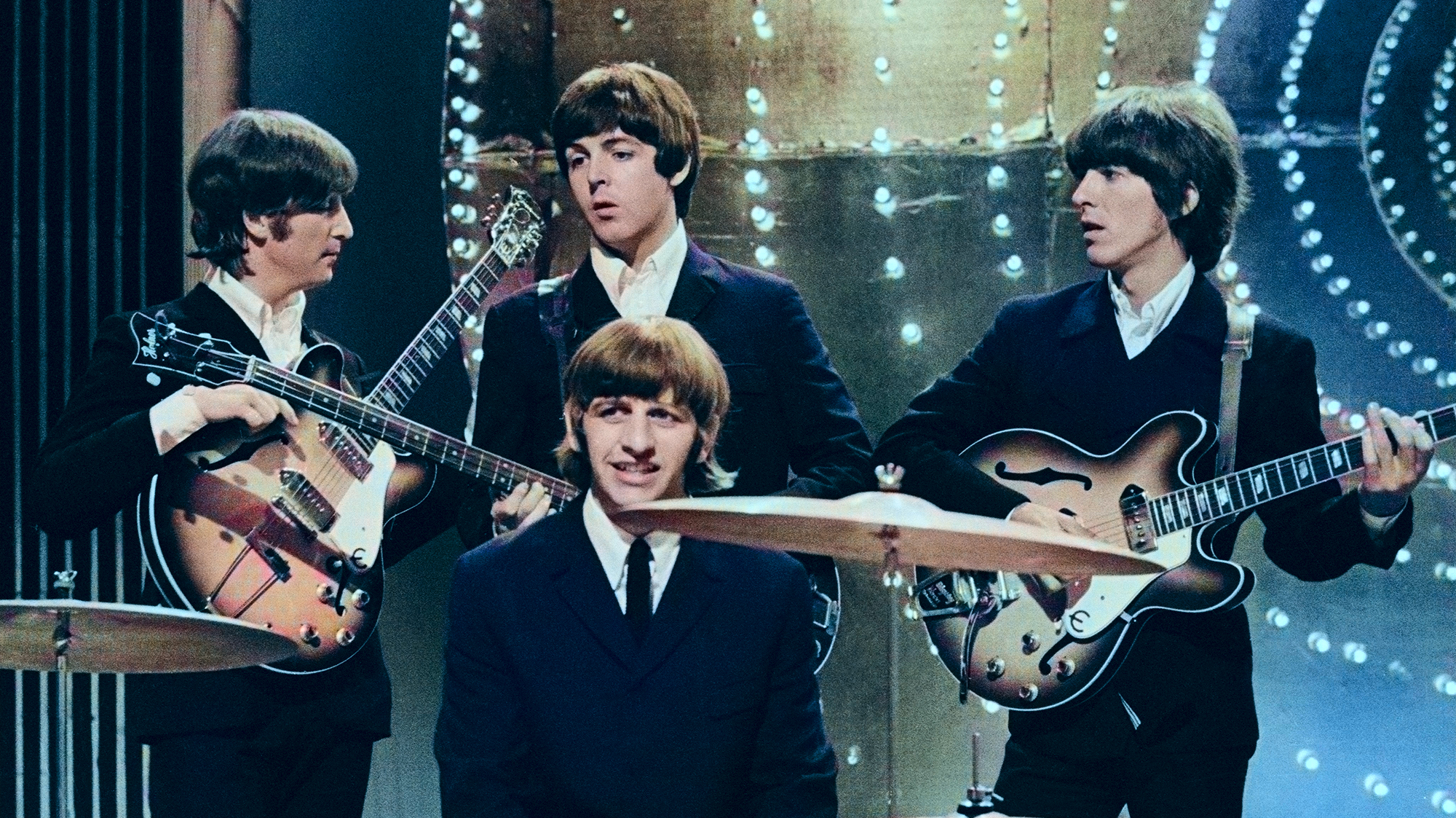
When I was a kid in the ’70s, you could name the serious women players on one hand.
I was introduced to Suzi Quatro from her appearances as Leather Tuscadero on Happy Days, but prior to that, she was a multi-million selling artist with a reputation as a badass rock chick.
Suzi Quatro is real Detroit grit – a self-invented, unique, and courageous trailblazer
Actually, she may have been the first “rock chick.”
She dressed in black leather, played the hell out of the bass, and held her own with a group of rough Detroit dudes.
When I interviewed Suzi several years ago, I was struck by her seriousness as a player, her humility, and her outspoken opinions on female musicians.
I love how she holds us all accountable to master our instruments.
Even though she’s a grandmother now, and has lived in Europe for decades, Suzi Quatro is real Detroit grit – a self-invented, unique, and courageous trailblazer.

You created the rock chick.
Well, yeah, because there wasn’t anybody for me to model myself after. I was aware I wasn’t succumbing to being like other girls, and I was nervous about that, but I had to stick to what I was.
I made up my mind after seeing Elvis on The Ed Sullivan Show when I was eight years old that I was going to be like him.
I have a real aversion to women who pick up instruments and don’t play them properly
Suzi Quatro
After his comeback concert [in 1968], the whole leather thing made sense to me. I actually had a big argument with my first manager about it. He said it was old hat, but I said, “Well, it has never been done by a girl.” So he suggested the leather jumpsuit, and that was it.
Was it difficult being an originator when you were young?
It was hard all through my life. I never knew where I belonged until I got on stage. I shocked a lot of people. I was playing with a band of guys, and I was in charge.
Nobody had seen that before, and I like to think I gave women a voice in rock and roll, which we should have had, but we didn’t.
In fact, to this day, I have a real aversion to women who pick up instruments and don’t play them properly. That really pisses me off. I think, “What the hell did I bother for?” If you can’t play it, don’t fucking pick it up!

How come the bass?
When we started our first band after seeing the Beatles, my sister Patti told me, “You’ve got the bass.” So I asked my dad if I could borrow one. He gave me a ’57 Fender Precision, and all the other girls were playing cheap copies. Destiny rules, you know?
Stay grounded... Stay hungry... Follow your heart
Suzi Quatro
I think it was god’s plan from day one that I was going to be a bass player. But I still practiced until my fingers bled.
The Fender Precision has a wide neck, and I have small hands. Luckily, I knew piano, so my hands were used to stretching for notes, but until I got the feel of the Precision, it was really hard on my fingers.
What are the most important things you’ve learned during your career?
You must stay totally grounded. You have to leave your ego on the stage where it belongs. I have Suzi Quatro, and I have little Suzi from Detroit. They are both me, but they are two different people.
You should also stay hungry. I always want more, and that’s a good thing, because it keeps me creative.
Finally, you need to follow your heart. Your dream doesn’t have to be making you money – it just has to make you happy.
Order Suzi Quatro's latest studio album, The Devil in Me, here.
Get The Pick Newsletter
All the latest guitar news, interviews, lessons, reviews, deals and more, direct to your inbox!
“We’d heard Jimi Hendrix, we'd heard the Who, but now we finally got to see these guys. And watching Jimi Hendrix burn his guitar….” Grace Slick on Hendrix at Monterey, Jefferson Airplane and the Spanish origins of “White Rabbit”
“I’m still playing but I’m covered in blood. Billy’s looking at me like, ‘Yeah! That’s punk rock!'” Steve Stevens on his all-time worst gig with Billy Idol — and the visit to Jimi Hendrix's grave that never happened










